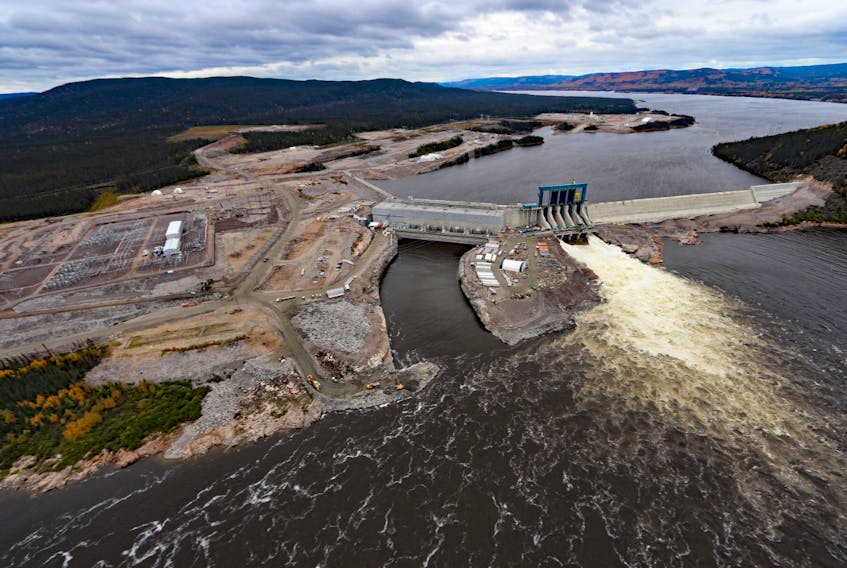By Dennis Browne
Just prior to this COVID-19 crisis, Commissioner Richard LeBlanc delivered the Report of the Commission of Inquiry Respecting the Muskrat Falls Project.
His closing remarks included: “The reality is that the financial burden brought about by the project has significantly diminished the confidence of many in this province.”
This is certainly a sad commentary.
Newfoundlanders and Labradorians were told that the project would be the “next chapter in our province’s future … guided by independence, security and self-sufficiency” and that “it will meet our province’s future energy needs, stabilize rates for residents and businesses.”
That is not the reality today for the people of this province.

The commissioner stated “Nalcor presented the project to government and the public as the lowest-cost option for supplying electricity to the island, but the alternatives were not fully explored and some were discarded for unjustified reasons. The assumptions on which the project’s economics were based and promoted were not sufficiently tested, and a comprehensive examination of the range of possible outcomes were not undertaken. The cost estimate for the Project was knowingly understated in several ways, resulting in a budget that proved to be inadequate as soon as bids for major contracts were received.”
The commissioner concluded that Nalcor denied the government of Newfoundland and Labrador (GNL) sufficient and accurate information upon which to appropriately decide whether to sanction the project, and did not fully inform government of the risks and problems anticipated with the project.
The commissioner found past governments culpable for failing to employ appropriate measures to oversee the project, and “that the flow of information between Nalcor and GNL was loose, unstructured and informal.” … “There was neither a reporting protocol nor policy directive to guide it. GNL did not have the necessary capability or resources to meaningfully challenge, test or evaluate the information provided by Nalcor. The solution to this lack of capability and resources would have been to retain truly independent experts to conduct a thorough analysis, which was not done until 2016.”
The commissioner stated “If GNL had been committed to discharging its oversight role in a responsible manner, as was expected by the public, it would have recognized the importance of insisting that Nalcor have substantially more design work completed and more accurate cost and risk estimates prepared before it sent the Reference Question to the PUB” and that “GNL believed that the PUB should have simply rubber-stamped the GNL’s preference for the Interconnected Island Option.”
The commissioner cited a public-service failure: “GNL made a policy decision to develop the Lower Churchill River and eventually Muskrat Falls and it was the clear intention of the Williams and Dunderdale governments to proceed with the project. I conclude that the public service failed in its duty to properly advise GNL about the risks associated with such a large and expensive project and about the need for independent assessment and appropriate oversight. With few possible exceptions, there is no indication in the evidence that any public servants provided any form of ‘courageous advice’ to ministers at any time during the development and construction of the project.”
“I also find that the Department of Finance failed to take the lead to ensure that a full financial analysis of the project was completed before Project sanction and Financial Close and failed to conduct any review of the impact that significant cost overruns would have on the financial position of the province.”
The commissioner’s recommendations included advice on 2041 and the Upper Churchill renewal stating N.L. and Quebec will have leverage in the negotiations and both provinces will have to be willing to compromise. Also, a panel of experts, independent of GNL, should be established to make recommendations on preparing for 2041.
The commissioner recommended that GNL update the energy plan and Nalcor’s mandate to reflect changes in the energy landscape that have occurred since it was created.
The commissioner referenced the duty to document and that legislation was required to promote the requirement within government to document and create records.
Also, GNL should complete its review of the Public Utility Board’s mandate and, decide whether changes to the Electricity Power Control Act, 1994 and the Public Utilities Act and performance-based regulations are required.
The commissioner also made recommendations on managing large publicly funded projects advocating a project governance framework within GNL with authority, stability and adequate resources including external independent competent consultants.
Project proponents would be required to present multiple project options. Other provincial frameworks were studied; Quebec’s framework for public funded projects should be considered.
I support all the commissioner’s recommendations. The report should be tabled and debated within the legislature. Timeframes should be set for report implementation.
As the commissioner concluded “In short, restoring the confidence of the people of Newfoundland and Labrador in our shared future will be a significant challenge for this province’s present and future leaders.”
Dennis Browne, QC, is the consumer advocate for Newfoundland and Labrador. He writes from St. John’s.









